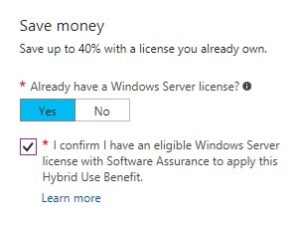Microsoft announce Azure Reserved VM Instances (RIs). There’s no word on launch date, but customers will be able to make big savings on Azure virtual machines by committing to 1 or 3 year terms for a particular VM type in a particular Azure region.
There will be flexibility for customers too with the ability to cancel the RI, or exchange it for another VM type in another data centre. Scott Guthrie’s blog post is here (see second to last paragraph): http://bit.ly/2ybA0dZ, and there’s useful information on azure.com too: http://bit.ly/2fV95bC.

